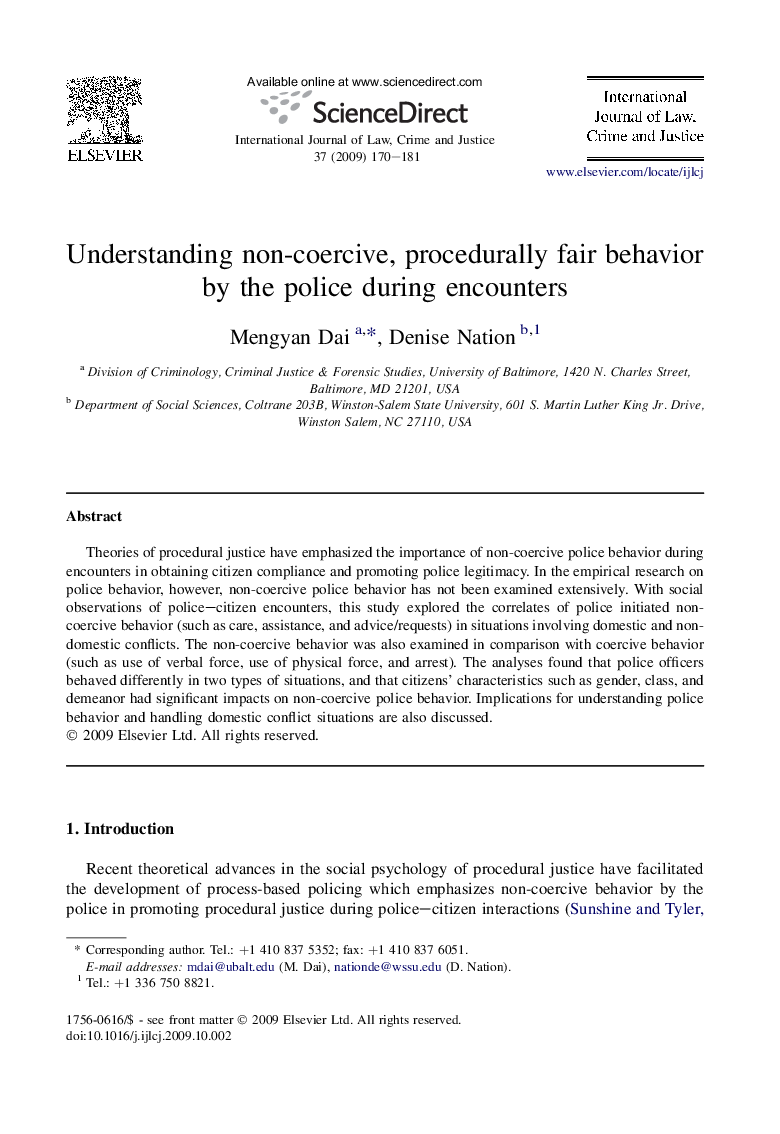| Article ID | Journal | Published Year | Pages | File Type |
|---|---|---|---|---|
| 1097968 | International Journal of Law, Crime and Justice | 2009 | 12 Pages |
Theories of procedural justice have emphasized the importance of non-coercive police behavior during encounters in obtaining citizen compliance and promoting police legitimacy. In the empirical research on police behavior, however, non-coercive police behavior has not been examined extensively. With social observations of police–citizen encounters, this study explored the correlates of police initiated non-coercive behavior (such as care, assistance, and advice/requests) in situations involving domestic and non-domestic conflicts. The non-coercive behavior was also examined in comparison with coercive behavior (such as use of verbal force, use of physical force, and arrest). The analyses found that police officers behaved differently in two types of situations, and that citizens’ characteristics such as gender, class, and demeanor had significant impacts on non-coercive police behavior. Implications for understanding police behavior and handling domestic conflict situations are also discussed.
